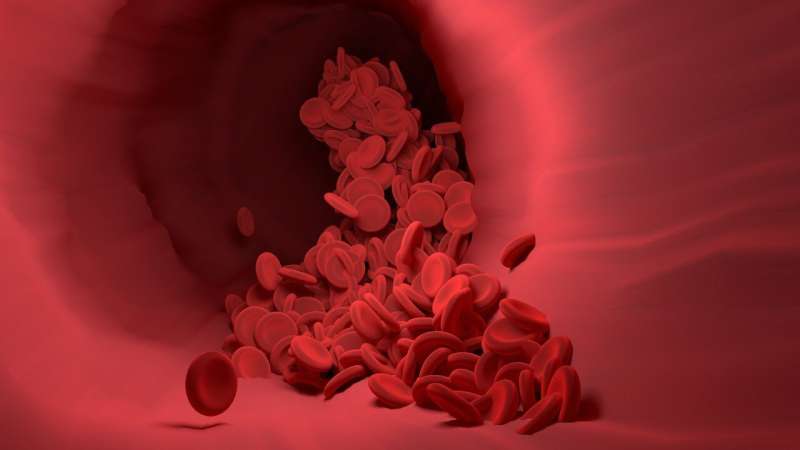
Chimeric antigen receptor T-cell therapy, or CAR T, has been a breakthrough in the treatment of blood cancers such as acute lymphoblastic leukemia and diffuse large B-cell lymphoma. Clinical studies have shown overall response rates of more than 80% with an ongoing response of nearly 40% more than two years after therapy. However, the cellular immunotherapy doesn’t work for every patient. Moffitt Cancer Center, one of the leading centers for cellular immunotherapy, is researching why some patients have a better CAR T response than others and what can be done to improve the treatment’s effectiveness. In a new study published in Blood, the official journal of the American Society of Hematology, Moffitt researchers show that immune dysregulation can directly affect the efficacy of CAR T therapy in patients with diffuse large B-cell lymphoma.
Diffuse large B-cell lymphoma is the most common type of non-Hodgkin lymphoma. It is an aggressive cancer affecting B lymphocytes, a type of white blood cell that helps the body fight infection. Axicabtagene ciloleucel was the first CAR T therapy approved for the treatment of this type of cancer. It is indicated for patients with refractory or relapsed disease, meaning they have failed two or more prior courses of therapy. For CAR T-cell therapy, a patient’s immune cells are collected through a process called apheresis. Those immune cells are genetically modified in a lab, adding a chimeric antigen receptor that helps the T cells locate and kill tumor cells once infused back into the patient.
For this observational study, the research team collected blood and tumor samples from 105 patients treated with axicabtagene ciloleucel. The samples, which were taken before and after therapy, were analyzed. Patients were categorized into two groups: durable responders, meaning they remained in remission at a minimum follow-up of six months following CAR T infusion, and nondurable responders who experienced relapsed lymphoma.
“Large B cell lymphoma patients with active disease already experience immune dysregulation, such as elevated cytokines, altered myeloid cell populations and T cell deficits. Our analysis was to determine how these immune characteristics and inflammation affect the ability for CAR T cells to expand and seek out cancer cells following infusion,” said Frederick Locke, M.D., vice chair of the Blood and Marrow Transplant and Cellular Immunotherapy Department and co-leader of the Immuno-Oncology Program at Moffitt.
The results showed that large tumors lead to immune dysregulation in patients due to chronic interferon signaling within the tumor and high cytokine levels in the patient. Overall, CAR T-cell therapy was less likely to be successful in patients with immune dysregulation. This was attributed to impairment of the growth of CAR T cells in these patients, as well as resistance to CAR T-cell therapy by the tumor due to the expression of multiple immune checkpoints.
“These findings could help improve the way we administer CAR T therapy on two fronts. We can use interventions to help improve the quality of patients’ immune cells prior to apheresis, resulting in a better CAR T product. We can also help better prepare patients’ immune systems to receive the CAR T cells to increase response following infusion,” said Michael Jain, M.D., Ph.D., assistant member of the Blood and Marrow Transplant and Cellular Immunotherapy Department at Moffitt.
Source: Read Full Article
